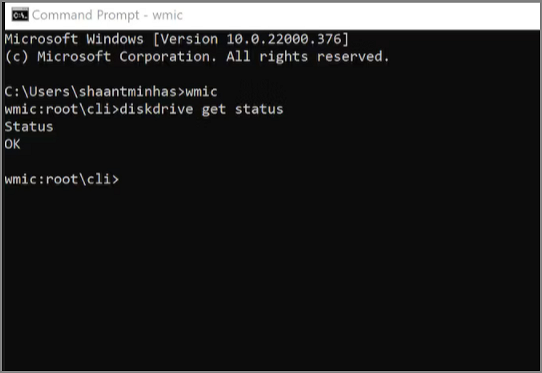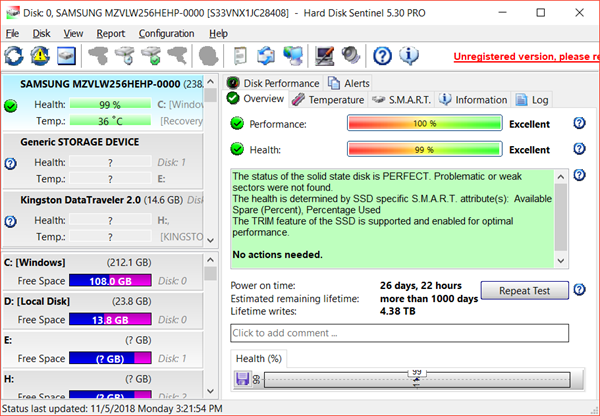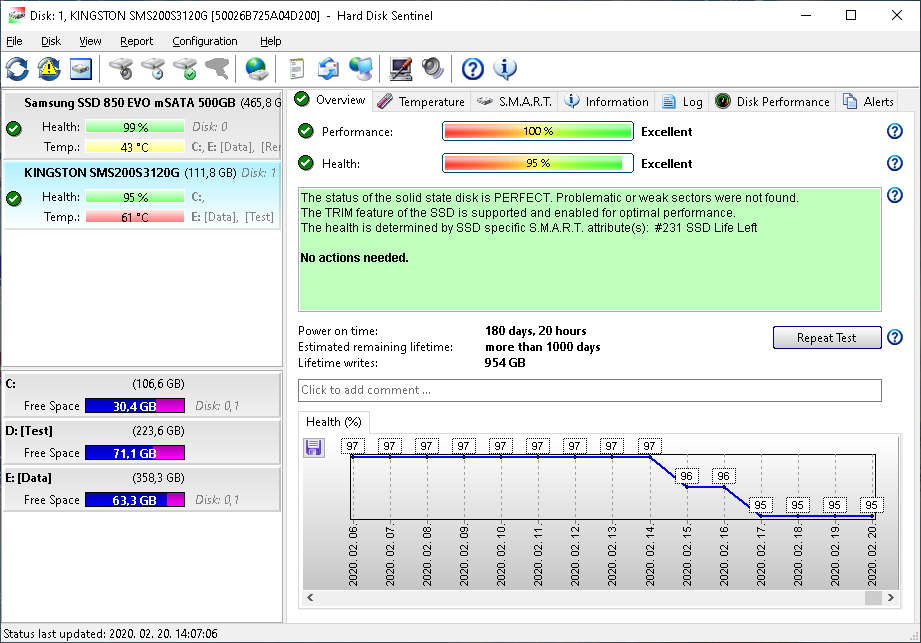
(Self-Monitoring, Analysis, and Reporting Technology) attributes. Attributes Out of Rangeįinally, one of the best metrics you can look at regarding the health of your drive are the S.M.A.R.T. You can't avoid bad sectors entirely, but if they increase in number, you should be concerned. Logical bad sectors are software-based, where your operating system determines that a particular hard drive sector is not behaving as expected. Physical bad sectors are caused by actual physical damage to the hard drive. An Increasing Number of Bad Sectorsīad sectors come in two forms, physical and logical. If you're saving files only to find them corrupt when you open them next, it's time to investigate. Except for instances like your computer crashing during a file save because of a power outage (without a UPS to keep it on), you shouldn't be experiencing file corruption or missing files. Saving and accessing files on your computer should be a smooth and reliable process. While you're at it, be sure to take some basic steps to increase performance so you can rule out other issues beyond disk problems.
#Check ssd health windows 10 cmd full
If your computer is acting sluggish in a way that can't be explained by aging hardware, overly full storage, viruses, or excessive apps running, it's worth looking at both your primary hard drive (the one your operating system is running off) and at any secondary drives you're using for games or apps. When your hard drive begins behaving in unexpected ways, critical processes will fail and the computer will freeze up. While there are a wide variety of reasons why you might experience computer crashes or "blue screen of death" errors, hard drive problems can be one of them.

#Check ssd health windows 10 cmd Pc
If the normal sounds of your PC bother you, though, we have some tips to help you quiet it down. And if you do hear a whining sound, it's likely fan bearings going bad, coil whine, or your PSU is failing. If you have only solid-state drives (SSD) or NVMe drives in your computer, you won't hear any mechanical sounds. But if you hear anything that sounds like grinding, scraping, or high-pitched whining, then that's a sure-fire sign your drive is on its way out. If you have a traditional mechanical hard drive (HDD) in your computer, it's not unusual to hear the hard drive, especially when writing lots of files to it. data, which we'll discuss in a moment, to assess the drive health of HDD, SSD, and NVMe drives. Not every sign below applies to all the drive times, but you can use S.M.A.R.T. There are three kinds of drives people use now, traditional hard drives (HDD), solid-state drives (SSD), and Non-Volatile Memory Express (NVMe) drives. Signs Your SDD or Hard Drive Is Dyingīefore we dive into learning more about S.M.A.R.T., let's talk about general signs of solid-state drive or hard drive failure, as there is a good chance you found your way to this article because you are concerned your drive is on the way out. data and see if it has started to develop problems.

You can view your hard drive's S.M.A.R.T.

(Self-Monitoring, Analysis, and Reporting Technology) to gauge their own reliability and determine if they're failing.


 0 kommentar(er)
0 kommentar(er)
